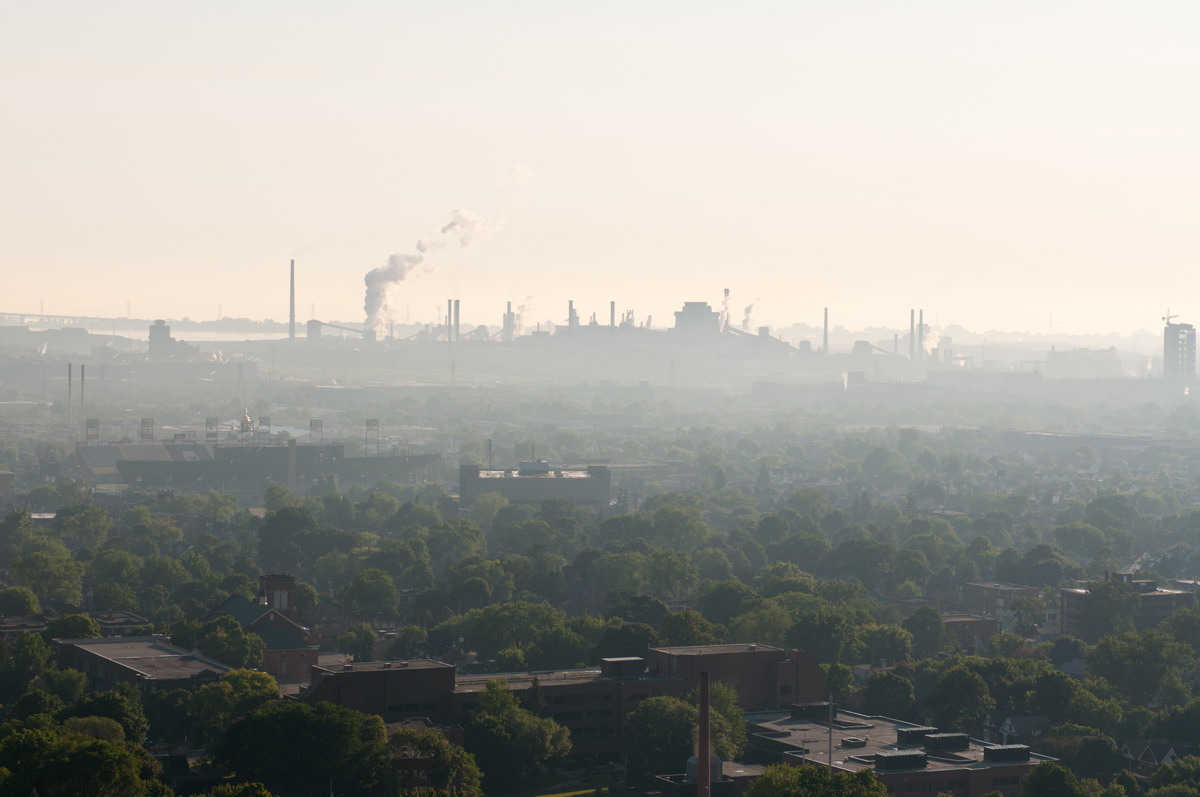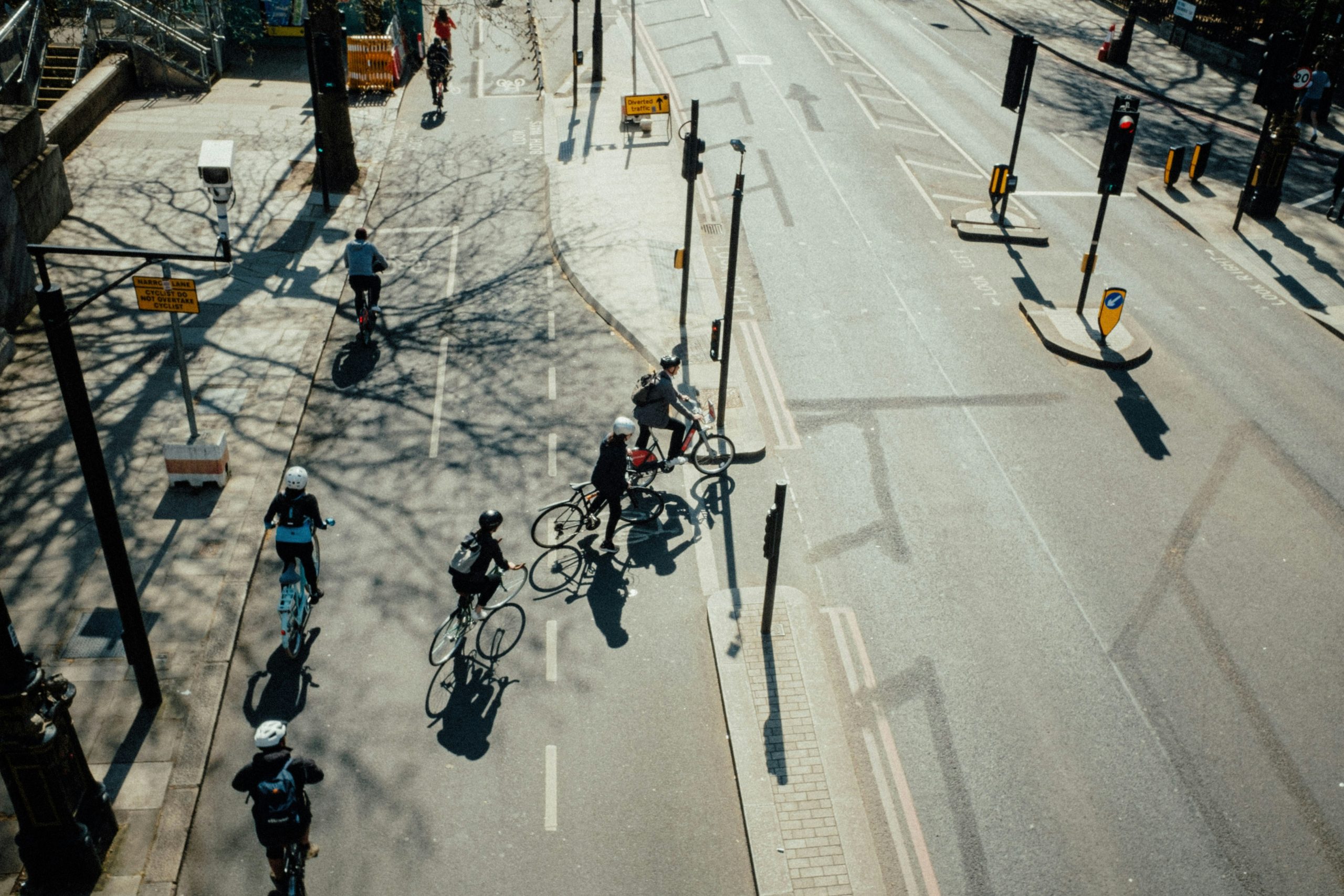Featured Guest
You’ll find this guest among our growing roll of Urban Champions.
-

Shoshanna Saxe
Associate Professor, Department of Civil & Mineral Engineering, University of Toronto
-

Mel de Jager
Vice President, Climate Change, Resilience & Sustainability, WSP Canada
-

Deb Harford
Head of Philanthropy and CEO, Foundation at Legible Media Inc
-

Chandra Sharma
CAO, Niagara Peninsula Conservation Authority
5 Key
Takeaways
A roundup of the most compelling ideas, themes and quotes from this candid conversation|
Additional Reading
& Resources
1. No more ‘regressing to the mean’
We cannot go back to the way that we used to operate. Resilience shouldn’t mean to “bounce-back” but to “bounce-forward.” We need to utilize the policy window that COVID has created and implement plans that are just and sustainable. We need to invest in projects that have multiple co-benefits. This is no time to regress to business as usual.
2. Simple > Sexy
As we begin to see cities transition to a new phase of recovery, there is a cloud of speculation over how stimulus investments will be spent. Our panel discussed the benefits of smaller and faster local infrastructure projects.
3. Gendered impacts of stimulus investment
Infrastructure is a male dominated industry. Investing in big infrastructure projects will put people back to work, but the jobs that are created will not benefit everyone equally. We need recovery investments that benefit everyone.
4. Pilot Season has come to Canada
Municipal governments need to show their leadership by embracing innovative and daring ideas. Canadian cities are experimenting with non-permanent pilot solutions. But cities should avoid “knee-jerk” reactions, such as building out to the suburbs to avoid population density, and should instead test, assess, and adapt as necessary as we move through and out of the crisis.
5. How do we pay for the change?
The panel discussed how governments can raise the capital necessary to implement shovel-worthy green projects. We need to find new ways to pay not only for green infrastructure and more green spaces, but also for affordable housing and social programs for vulnerable populations.
|
An Economic Impact Assessment of the Green Infrastructure Sector in Ontario, Green Infrastructure Ontario Coalition
Community efficiency financing: New and existing residential energy financing programs, Federation of Canadian Municipalities
Women Leaders in COVID-19: Seen and Unseen, Jessica Howard, Canadian Women’s Foundation
Full Panel
Transcript
Note to readers: This video session was transcribed using auto-transcribing software. Manual editing was undertaken in an effort to improve readability and clarity. Questions or concerns with the transcription can be directed to events@canurb.org with “transcription” in the subject line.
Full Audience
Chatroom Transcript
Note to reader: Chat comments have been edited for ease of readability. The text has not been edited for spelling or grammar. For questions or concerns, please contact events@canurb.org with “Chat Comments” in the subject line.12:02:11 From Christopher Hakes to All panelists: Hello Shoshanna – what a nice surprise to see you here – it’s been a long time!!
12:02:46 From Canadian Urban Institute: CUI is looking for volunteers to help us continue the great work of our COVID-19 initiatives. If you can help, please contact us at covidresponse@canurb.org
12:02:54 From Irena Kohn to All panelists: Happy Belated Birthday, Mary!
12:03:27 From Canadian Urban Institute: Folks, please change your chat settings to “all panelists and attendees” so everyone can see your comments.
12:05:33 From Canadian Urban Institute: Keep the conversation going #citytalk
12:06:58 From Canadian Urban Institute: You can find transcripts and recordings of today’s and all our webinars at
https://www.canurb.org/citytalk
12:07:16 From Jenna Dutton: Happy Belated Birthday!
12:07:29 From Eva Chu: Happy Belated!!!! Hope you had a good one!!!!
12:07:33 From Emily Wall, CUI Staff: Today’s panel:
Deborah Harford – https://act-adapt.org/executive-director/
Mel de Jager – https://www.wsp.com/en-CA
Shoshanna Saxe – https://twitter.com/shoshannasaxe
Chandra Sharma – https://twitter.com/Chandra91989046
https://npca.ca
12:13:59 From Jennifer Spence: Hello from Halton Hills
12:17:03 From Andrew Thomson: Remote working can reduce requirements for builldings, transportation infrastructure and have massive reductions in GHG emissions. Rather than shovel-ready megaprojects in the Phase I & II recovery goals, why do we not focus on ‘ephemeral’ infrastructure like high-speed mesh-networked community internet, better platforms and tech, as they are cheap, quickly executable, and currently, everywhere in use for the very first time? The greenest building is one that already exists, with better technology, retrofits & ephemeral infrastructure approaches? Would you agree?
12:19:53 From Steve Winkelman to All panelists: We need “shovel-worthy” projects that increase vulnerabilities and GHG emissions (not sandbag-ready projects).
12:20:02 From Brandy Burdeniuk to All panelists: Could we shift from shovel ready to “shovel worthy”
12:20:05 From Mike Mattos: How do we redistribute greenspace? How do we provide work to unskilled workers when we reduce overheads by working at home? We have unemployment in pockets where there is no green space and no likelihood of retraining. So how do we address revitalizing cities when we have increasing disparity?
12:20:29 From Steve Winkelman to All panelists: Correction: We need “shovel-worthy” projects that decrease vulnerabilities and GHG emissions (not sandbag-ready projects).
12:20:41 From Olga Semenovych: I’m curious how might thinking about COVID19 pandemic and any future pandemics as part of the climate change emergency, not as a separate issue, impact our approach to rebuilding.
12:20:42 From Canadian Urban Institute: Welcome new joiners! Just a reminder to please change your chat settings to “all panelists and attendees” so everyone can see your comments.
12:21:47 From Anna Marandi: big infrastructure projects are so unlikely to be funded in the states, esp if fed funding to cities does not filter down to that level. Is it any better in Canada? How can we shift focus away from seawalls and invest in community driven projects (which save lives and build social cohesion)
12:23:33 From Douglas Hevenor: Recently I read this, “When our parks and green spaces become crowded we close them and discourage public use…when our roads become jam packed with cars and trucks we throw up our hands and yell from the roof tops we need to build more lanes, bigger highways, and more toll roads.”
Action is needed not trials, and pilots. We need to create cities, which encourage physical activity, reduce our reliance of fossil fuels, provide mobility options for people young and old, and support our recovering economy in a sustainable and responsible way.
12:23:47 From Catherine Soplet to All panelists: Suggest: Conjoin youth with elders in planting tree specimens for climate change research, a proposal called “Project Crossroads: PLanting for Change” developed by ACER-ACRE Canada. #ProjectCrossroads #Planting4Change on social media. Website under construction pending federal approval of funding to plant 6000 tree speciments in Peel Region.
12:24:02 From Jenna Dutton: How do we communicate and use “fact/ science” to convey climate change so that we take timely and sustained action at the same urgency that has happened with the pandemic? Curious on good examples on how co-benefits can be better reflected in policy that is able to be monitored and implemented more effectively.
12:25:32 From Scott Vokey: Recent polls on impact on transit and move away from density back up Shoshanna’s point.
12:25:55 From Laurian Farrell to All panelists: I believe Chandra said we need more green infrastructure, not that people needed to start living in bigger homes. Urban density is not the enemy to pandemic but cities need to provide green space and alternatives to outdoor experiences
12:26:30 From Margaret Prophet: Shoshanna is on fire! Totally agree.
12:27:06 From J. Scott: Any consideration of limits to growth and increased population numbers that drive land use, resource extraction (including concrete), and use of the earth to service humans as opposed to the rest of creation, plant and animal populations?
12:27:21 From Rebecca Aird: Shoshanna mentioned that the data does not support the perception that density has been dangerous. Can you share any links on relevant data/analyses?
12:27:39 From Mike Mattos: COVID is affecting crowded low income areas, typically not drivers of policy
12:27:52 From Mick Malowany: If someone can figure out how to build widespread public confidence in counter-intuitive but very true concepts/relationships, don’t keep it to yourself!:)
12:27:53 From Stephanie Bergman: Yes let’s talk about smaller communities… some of the most vulnerable communities are those smaller communities that don’t have the funding and capacity to implement real change.
12:27:56 From Niharika Bandaru to All panelists: How do municipal governments stress on communicating more funding and better climate mitigation and adaptation projects at a time of COVID recovery, when there is rhetoric to focus solely on COVID public health and economic recovery?
12:28:14 From Eva Chu: What are some ways environmental racism can be addressed during recovery?
12:28:15 From Jade Yehia to All panelists: Yes please! I am echoing Rebecca’s comment. Thank you for framing that as density vs crowding. That’s brilliant and incredibly insightful!
12:28:25 From Christine Furtado to All panelists: Thank you for bringing up the assumptions around Density Shoshanna. A very valuable and distinct difference between density and crowding.
12:29:00 From Anna Mathewson: I completely agree that residential retrofits are impactful – they can reduce GHG emissions in our cities and create well paying jobs in the post-COVID world. There was a suggestion that we take time now to plan for a retrofit strategy in cities; few of us have these in place yet. Some of the challenges in this include: (1) city staff are right now flat out providing essential services, (2) taking time to do a complex housing retrofit strategy may be on our agenda but difficult to do right now with staffing and priority challenges, (3) cities do not generally (with some exceptions like Vancouver or Toronto) have staffing to do these types of plans nor do they have budgets for hiring consultants to do these plans. We need more funding for embedded staff in our cities, to build our capacity to take on all this needed planning and project work.
12:29:07 From Douglas Hevenor: Certainly projects can be broken down into smaller $10K to $250K shovel ready and deliverable over the next 6 months to 12 months. Plans are already in place they just need to financed and green lighted.
12:29:09 From Allison Ashcroft to All panelists: must invest in people/capacity/connectivity of people. that will accelerate the planning, but more importantly ensure impactful and equitable investments in infrastructure, amenities, programs and services might actually occur
12:29:16 From Canadian Urban Institute: Reminding attendees to please change your chat settings to “all panelists and attendees” so everyone can see your comments.
12:29:20 From Scott Vokey: Technology not an issue for home retrofits, it is more an issue of scale.
12:29:21 From Brandy Burdeniuk to All panelists: City of Toronto has “Energy Retrofit Loans”https://www.toronto.ca/services-payments/water-environment/environmental-grants-incentives/energy-retrofit-loans/
12:29:21 From Steve Winkelman to All panelists: My recent blog Mobilizing Against COVID-19 (by staying put) https://www.greenresilience.com/covid-climate-transport, includes a graph on COVID cases vs. density in NYC: https://images.squarespace-cdn.com/content/v1/58c977dbc534a56689255f62/1586433381276-4FR6034FDY4N8BZCVBXS/ke17ZwdGBToddI8pDm48kN-98e6atC1eSrh9Bj-RRc5Zw-zPPgdn4jUwVcJE1ZvWQUxwkmyExglNqGp0IvTJZamWLI2zvYWH8K3-s_4yszcp2ryTI0HqTOaaUohrI8PIHCbEEfX-NM_qcgFCYftt9-9VCnQKQ8Tn1soumDScB7k/image-asset.png?format=1000w
12:29:31 From Allison Ashcroft: must invest in people/capacity/connectivity of people. that will accelerate the planning, but more importantly ensure impactful and equitable investments in infrastructure, amenities, programs and services might actually occur
12:29:41 From Francis Wallace to All panelists: COVID has created a conversation where Canada may have been better off with a sparse density compared to cities around the world that have higher densities. Shoshanna Saxe is correct – over-crowding is the topic that better focuses on the problem and ongoing spread of COVID.
12:29:57 From Jade Yehia: (Take 2) Yes please! I am echoing Rebecca’s comment. Thank you for framing that as density vs crowding. That’s brilliant and incredibly insightful!
12:30:14 From Emily Wall, CUI Staff: Please help CUI improve its CityTalk programming with a short post-webinar survey – https://bit.ly/3fJCGCQ
12:30:38 From Steve Winkelman to All panelists: Also see Brent Toderian’s blog on crowding vs. density: https://nyc.streetsblog.org/2020/04/06/op-ed-dear-gov-cuomo-the-problem-is-crowding-not-density/
12:31:05 From Mike Mattos: Home retrofits is in the environmental racism bucket. Corporate retrofits for the CURRENT tenants is the needed, not tear down are rent to more affluent people
12:31:50 From Anna Marandi: agreed – small communities are going to be hit so hard as well
12:32:07 From Anna Mathewson: Deborah is correct that we’re still in the midst of this crisis…it’s about the survival of SMEs, jobs, our residents.
12:32:15 From Lukas Golka to All panelists: Today society is trying fight fight new world issues with last century technologies and it doesn’t work. There a new technologies able solve today’s issues like COVID19, CLIMAT CANGES, etc., but here in Canada it is very hard even start the discussion if it is not Canadian idea, technology. https://www.youtube.com/watch?v=-GA8YMrAtmg
12:33:05 From Lenore Swystun: new developments that can be placed on fringe lands that can hit climate change, post pandemic protocols and wellbeing targets will be so important. many municipalities have aspirational goals, some policies, but less tangible land use tools to accommodate. thinking covid may give permission to such.
12:33:21 From Margaret Prophet: let’s not forget that the loss of jobs is not equal amongst the genders. Women have lost more jobs and the service and restaurant industry has been hardest hit.
12:35:50 From Jenna Dutton: Especially connected green spaces that are safe and accessible and provided equitably across cities
12:36:27 From Douglas Hevenor: Do the projects collaboratively under larger umbrella Foundations could apply for funding then breakout the work. For example Conservation Authorities have projects ready. The challenge is $$$ to fund them.
12:37:20 From Jennifer Court: Chandra, that’s right—it’s actually 122,000! The Green Infrastructure Ontario Coalition (with financial support from the Greenbelt Foundation) just released a report: An Economic Impact Assessment of the Green Infrastructure Sector in Ontario.
12:37:24 From Kerri Klein: How might municipalities think about win-win-win that integrate climate, health, social agendas? Could municipal stimulus be used for social programs and services, not only capital projects (that will only create jobs for those that have technical skillset).
12:37:33 From Francis Wallace to All panelists: Going back to the conversation near the beginning of this conversation, I have worked from home for the past 4 years and have never been happier. It is a great way to increase morale and help the environment. For those people that have an office career, it is much better for the environment. In this day and age, commuting for an hour each way to work from an office tower is completely archaic. People need to trust that someone working from home is getting their work done. No different than monitoring people sitting at their desk’s in an office setting. At any rate, working from home could be an amazing opportunity to integrate using technology and help people feel networked, engaged and empowered to do their absolute best.
12:38:41 From Allison Ashcroft: mass deep retrofits require a national investment in access to finance, energy advisors and trade training and certification (GBA+), a software solution with digitial marketing and end-to-end CRM to help homeowners identify savings opportunities, to manage trade bids/quotes for consumer protection, process rebates, access financing and thereby reduce all the friction for retrofits. Meanwhile on the backend you can actually measure impact and evaluate and adjust programs and incentives. With these investments, we can leverage private capital because $300M in financing from Feds, translates to 15K-20K homes which is wholly insufficient (TO needs 420K alone in this decade). But credit unions, banks, impact investors need the impact measurement and evaluation, and to make access to low interest financing equitable, fed funding needs to provide a loan loss reserve to these private lenders.
12:39:15 From Jade Yehia: I couldn’t agree more! I work in Public Health (specific in the Healthy Built Environment arena) and this, in my mind, is the way forward. Collaboration and making those environmental linkages, co-benefits, we can multisolve these epic problem facing us all. In an era of COVID and climate change. In a crazy way… COVID is the hopeful opportunity to do better (fingers crossed).
12:39:23 From Christine Drimmie to All panelists: Chandra’s point may support the need for stimulus programming dollars to support planting and programming related to green space, environmental initiatives, making homes better for working, outdoor programs for school children
12:39:35 From Lenore Swystun: yes yes yes!
12:40:00 From Mark Palmer: agree
12:40:33 From J. Scott: Better public transportation would help deal with this. Where are the buses, trains and other methods to facilitate tourism without damage to the environment?
12:40:58 From Jennifer Cutbill to All panelists: Yes absolutely re holistic health. Recommend looking at great work being done by CAPE (Canadian physicians for the environment) and their focus on ‘planetary health’ (defined as interdependent health of society and ecology). Their president (Dr Courtney Howard) is also part of the global planetary health alliance. Need to realign investments in civic assets with intergenerational health equity. To do this, we need to shift current capital asset investment, procurement, and management …or rather locally-empowered stewardship.
12:41:29 From Mike Mattos: IF the colleges are closed, Tim Horton’s closed, how do we afford 10% unemployment going forward? And if the stock market triggers a financial crisis, even worse issues. DO we not need to talk about an employment strategy in our sector, how GREEN employs millions of unskilled people, and not talk about infrastructure which is essentially one time projects?
12:41:40 From Emily Wall, CUI Staff: Reminding attendees to please change your chat settings to “all panelists and attendees” so everyone can see your comments.
12:41:46 From Mick Malowany: Is that another reason for smaller (pilot-type) projects vs bigger one — less red tape, faster approval?
12:41:48 From Felipe Canavera: I agree with Mel, there is need to find ways to allow for experimentation. Adaptation to climate change shouldn’t be a long-term only issue, there is a need to do it in smaller cycles
12:42:30 From Christine Drimmie: Chandra’s point may support the need for stimulus programming dollars to support planting and programming related to green space, environmental initiatives, making homes better for working, outdoor programs for school children
12:42:34 From Jenna Dutton: Resistance to change
12:42:35 From Jennifer Cutbill to All panelists: Re wastewater treatment plants, great regenerative example is Metro Van’s Iona Waatewater treatment plant. Mandate shifted from hiding secondary treatment plant in a park to being a catalyst for regenerating the health of the Salish Sea. (open houses next week – virtual )
12:43:31 From Allison Ashcroft: 1970s/80s MURB rentals in low vacancy, increasingly unaffordable cities, could not just be 0 interest financed for retrofit, they could be purchased by govt and then retrofitted en masse so we also maintain and secure low market affordable rentals in perpetuity. Could encourage through taxfree capital gains rollover, donation tax credits, etc.. If govt doesn’t buy these up, REITs will.
12:43:56 From Jennifer Cutbill: Re wastewater treatment plants, great regenerative example is Metro Van’s Iona Waatewater treatment plant. Mandate shifted from essentially hiding a secondary treatment plant in a park to being a catalyst for regenerating the health of the Salish Sea. (open houses next week – virtual )
12:44:34 From Eryn Beddoes to All panelists: J Scott: https://banff.ca/DocumentCenter/View/6308/Calgary-Bow-Valley-Mass-Transit-Feasibility-Study?bidId=
12:44:45 From Jennifer Cutbill: (re copying to larger group)
12:44:49 From Susan Chin: Are there elected leaders and agency officials who would be open to testing co-beneficial projects?
12:44:59 From Canadian Urban Institute: CUI is looking for volunteers to help us continue the great work of our COVID-19 initiatives. If you can help, please contact us at covidresponse@canurb.org
12:45:34 From Eryn Beddoes: J Scott: https://banff.ca/DocumentCenter/View/6308/Calgary-Bow-Valley-Mass-Transit-Feasibility-Study?bidId=
12:46:06 From Brian Owen: Sorry, I thought I sent this earlier; Regarding whether and area is unsafe, if you consider the basis of CPTED, perception is greater than reality and when the public perceives that an area is unsafe, they believe it is unsafe and it becomes unsafe. I am coming from an area of involvement in BIAs, BIDs and downtowns, also as one who delivered the LED lighting education with Ontario’s CPTED program to Police Services. I was so fortunate to trade my lighting knowledge for that basic principle which holds true. Albeit ‘actual unsafe’ is terrible, perception is just as, if not harder to correct.
12:46:14 From Jennifer Cutbill: Yes absolutely re holistic health. Recommend looking at great work being done by CAPE (Canadian physicians for the environment) and their focus on ‘planetary health’ (defined as interdependent health of society and ecology). Their president (Dr Courtney Howard) is also part of the global planetary health alliance. Need to realign investments in civic assets with intergenerational health equity. To do this, we need to shift current capital asset investment, procurement, and management …or rather locally-empowered stewardship. RVDM + TFCD + planetary health equity cumulative co-benefits. Place-based investment – yes!
12:46:45 From Francis Wallace: Going back to the beginning of this conversation, I have worked from home for the past 4 years and have never been happier. It’s a great way to increase morale and help the environment. For those people that have an office career, it’s much better for the environment to simply work from home. In this day and age, commuting for an hour each way to work from an office tower is completely archaic. People need to trust that someone working from home is getting work done. No different than monitoring people sitting at a desk in an office setting. At any rate, working from home could be an amazing opportunity to integrate using technology and help people feel networked, engaged and empowered to do their absolute best.
12:46:54 From Mohamed Dhanani to All panelists: What role do you think universities need to play?
12:47:10 From Mike Mattos: Why do you think we can bring back main street if people are working at home?
12:47:47 From Mike Mattos: Working at home and shopping at Amazon!
12:48:06 From Donna Mayer: https://fcm.ca/en/funding/gmf/community-efficiency-financing-new-existing-residential-energy-financing-programs
12:48:28 From Jennifer Court: The Infrastructure Canada thresholds are very high across the board—lowering those thresholds for the Climate Lens as well as for project size in general would make a big difference in funding green infrastructure projects.
12:48:40 From Jennifer Cutbill: agreed
12:48:49 From Mick Malowany: @Jennifer spot on
12:49:21 From Emily Wall, CUI Staff: Please help CUI improve its CityTalk programming with a short post-webinar survey – https://bit.ly/3fJCGCQ
12:49:40 From Allison Ashcroft: Like 1960s-1980s MURB rentals, this same era of stratas are increasingly challenged at accessing affordable insurance due to history of claims and deferred rehab. Like MURB rentals, these have proven the hardest to retrofit. NRCan has amazing data on energy use/emissions and cost effective/most impactful measures for deep retrofits for 62 building archetypes across the country. Let’s invest in the manufacturing and supply chain including capacity/jobs to deliver these mass deep retrofits for these most carbon intensive, most vulnerable residential buildings which are home to some of our least climate and economically resilient households.
12:50:42 From Christine Drimmie: Sr. governments need to rely on municipalities to identify smaller projects that meet local needs and trust them to spend the funds on projects that meet the criteria of resilience/equity/social needs/climate change at the granular scale and report results.
12:51:19 From Canadian Urban Institute: You can find transcripts and recordings of today’s and all our webinars at
https://www.canurb.org/citytalk
12:51:34 From Natalie Brown: To Chandra’s point, I work in urban parks engagement and advocacy and we have seen community park groups stepping up to do emergency food delivery and respond to other community needs because there was such a gap.
12:51:46 From Douglas Hevenor: Yes we need to work with Municipal partners
12:51:58 From Allison Ashcroft: https://www.vancouvereconomic.com/features/state-vancouvers-green-economy-2018-full-release/
12:52:48 From Gordon Duff to All panelists: Hi Deb, as a municipal finance person, I totally support your comments about the burden on municipalities for infrastructure. That is why FCM and AMO have been arguing for a share of the HST – no political support from any party so far!
12:53:04 From Jennifer Court: @Allison – that link isn’t working
12:53:26 From Toby Greenbaum to All panelists: because politicians won’t get elected if they raise taxes!
12:53:34 From J. Scott: Thank you Shoshanna! Yea for taxes. It’s a responsibility to the common good.
12:53:46 From Andrew Thomson: They call this the ‘jaws of death’ in the US, ie. NY. Decreasing revenues and increasing costs
12:53:50 From Eva Chu: YES!!!
12:53:52 From Mike Mattos: $1000 sounds reasonable, but a small apartment is already unaffordable and a $100 a month increase is significant!
12:53:55 From Margaret Prophet: Yes! We need to remove the idea that municipal taxes can’t go more than 2-3%!
12:53:55 From Christine Drimmie: property tax needs to be rebranded as community investment but we also need the new municipal fiscal model.
12:54:00 From Eva Chu: Raise taxes to people who can afford it!!!
12:54:00 From Andrew Thomson: To close the jaws is political suicide, even if needed
12:54:12 From Anna Mathewson: Interesting idea to lower threshold for climate lens for smaller projects. We do want to link funding to climate impact, as well as identify those co-benefits. Keep in mind that cities (or others who might apply for funding and are required to complete a climate lens assessment) need SOMEONE (a staff person) to do this analysis to then apply for that funding. We end up hiring (often expensive) consultants to do this assessment. Ideally we’d want to have staff capacity so we can do this analysis in-house, so we build cross-departmental understanding of what the climate lens is, why it matters, and how it help us achieve our GHG, equity and resilience goals.
12:54:31 From Margaret Prophet: Agree @ Christine. Politicians see tax increase as political suicide. We need to adjust that lens.
12:54:33 From Allison Ashcroft: https://www.irena.org/newsroom/articles/2020/Apr/IRENAs-Coalition-for-Action-calls-for-Green-Recovery-Based-on-Renewables
https://www.irena.org/newsroom/pressreleases/2020/Apr/Renewable-energy-can-support-resilient-and-equitable-recovery
https://www.irena.org/DigitalArticles/2020/Apr/Renewable_energy_for_a_low_carbon_future
12:54:36 From Mark Palmer: FYI for all https://www.ueforum.org/habitatintownposter and perhaps good fit with the conversation underway. Additional theme will include how COVID crisis warrants a fresh look at UN topic themes we were trying to abide to before COVID. Great discussion and thanks for letting me participate.
12:54:47 From Jennifer Cutbill: I’m just embarking on a PhD exploring how to realign civic assets with improving planetary health, resilience and intergenerational heath equity. Essentially co-developing a value case and place-based ‘innovation infrastructure’ to support local gov and practitioners alike. If anyone is interested, has recommendations (contacts, resources, etc) I would love to hear from / collaborate with you! jcutbill@lateralagency.ca
12:55:02 From Margaret Prophet: Yes Mel!
12:55:33 From Canadian Urban Institute: Keep the conversation going #citytalk
12:55:43 From Eva Chu: Thank you Mel!!!
12:55:46 From Christine Furtado to All panelists: Great points Mel, on gender equity!
12:56:04 From Emily Wall, CUI Staff: Please help CUI improve its CityTalk programming with a short post-webinar survey – https://bit.ly/3fJCGCQ
12:56:05 From Jennifer Cutbill: …whoops, and re PhD above – of course including foundationally local and indigenous communities
12:56:10 From Andrew Thomson: @Margaret, I can connect you with Jennifer:)
12:56:22 From Allison Ashcroft: The Federal Climate Lens is not currently structured as a decision-making lens. it is required to be completed in a certain way, and be submitted to Feds, eventually for public transparency of that project’s climate impact, BUT as it is currently structured, it is NOT a component of evaluation criteria for fed or provincial govt funding decisions, and OFTEN it is completed at the end of a project’s design so is not even informing the design of the project.
12:56:38 From Francis Wallace: @Anna Mathewson: Yes to in-house assessments vs hiring expensive consultants!
12:56:38 From Margaret Prophet: Great! Please do.:)
12:56:49 From Anna Mathewson: Jennifer, suggest you contact our Canadian Urban Sustainablity Practitioners (CUSP) network via Allison Ashcroft.
12:56:50 From Douglas Hevenor: Thank all of you for your time and the information you provided today. Keep the faith!
12:57:14 From Allison Ashcroft: Jennifer – that’s me allison@cuspnetwork.ca
12:57:25 From Jennifer Cutbill: Thanks @Anna! yes I am overdue on doing that. Will do!
12:57:26 From Amber Lively: Not a question, just a statement: I have thoroughly enjoyed this panel and its diverse perspectives. Thank you for opening this discussion and thank you all for your time and efforts
12:58:00 From Jenna Dutton: Agreed, really great discussion, thanks to all!
12:58:20 From Aroni McCutcheon to All panelists: Investing in growing and buying food locally and seasonally will also have significant benefits.
12:58:23 From Anna Mathewson: Agree with Amber!
12:58:25 From Jennifer Roth: Really appreciated this conversation. I hadn’t even thought about the equity of jobs during recovery.
12:58:28 From Niharika Bandaru to All panelists: Great panel and refreshing, tangible perspectives. Thanks to all!
12:58:33 From Jennifer Cutbill: Yes thank you all, and thank you especially CUI for facilitating all these great convos!
12:58:35 From Mohamed Dhanani to All panelists: “We shouldn’t be seduced by the sexy” great quote Shoshanna!
12:58:47 From Eva Chu: Wonderful convo, thanks to everyone!!!
12:58:58 From Margaret Prophet: Thank you for these. Really enlightening and enjoyable. WTG ladies!
12:59:11 From Thierno Diallo to All panelists: Thanks to all !
12:59:26 From Mariyan Boychev: Thank you very much!
12:59:41 From Anna Marandi: this was AWESOME. thank you from a Canadian neighbor in DC:)
13:00:05 From Niharika Bandaru to All panelists: Great point, Mel!
13:00:07 From Toby Greenbaum to All panelists: Excellent session, again!
13:00:17 From Catherine Soplet to All panelists: Great seession – thank you so much for rich discussion. LOVE women plan for households and also for the future #oikonomia:-)
13:01:11 From Jennifer Cutbill: @deb @alison – I’ll follow up on previous related convos soon.
13:01:18 From Emily Wall, CUI Staff: Please help CUI improve its CityTalk programming with a short post-webinar survey – https://bit.ly/3fJCGCQ
13:01:30 From Allison Ashcroft: gender inequities of COVID https://canadianwomen.org/inspired-slider/women-leaders-in-covid-19-seen-and-unseen/
13:01:38 From Andrew Thomson: Thank you all!
13:01:39 From Francis Wallace: Thanks everyone.
13:01:41 From Susan Chin: you rock!
13:01:42 From Christina Lovitt to All panelists: Thank you!
13:01:49 From Lara B: Thank you everyone!
13:01:54 From Eva Chu: Thanks everyone!
13:01:58 From Jennifer Court: Thanks! This was a really excellent panel!
13:01:59 From Mick Malowany: Thank you all for a fantastic panel! (and hello Chandra, good to hear from you!)
13:02:04 From Catherine Wood to All panelists: Thank you all for the thoughtful discussion! Lots to think about/do going forward. Appreciate your perspective and dedication
13:02:09 From Andrew Thomson: Ending the #shecession 5 women at a time!
13:02:12 From Christina Lovitt to All panelists: Thank you
13:02:23 From Ryan Walker: Excellent panelists – another hit CUI
13:02:40 From Brian Owen: Premier’s back to business announcement soon.
13:02:40 From Dave Waldron: Thanks, Mary and CUI: excellent panel discussion!
13:02:52 From Patricia Lewis: Thank you! Excellent conversation and insight!
13:03:00 From Ann Lockhart to All panelists: Thanks so much! great discussion and insights!
13:03:08 From Caroline North to All panelists: Thank-you panel! Excellent
13:03:10 From Jade Yehia: Fabulous conversation! Thank you
13:03:16 From Daniela Bodden: Thank you! Excellent panel!
13:03:26 From Allison Ashcroft: Vancouver and montreal have signed on to this c40 principles for recovery https://www.c40.org/press_releases/taskforce-principles
13:04:46 From J. Scott: Thanks all of you!
13:08:25 From Canadian Urban Institute: Great comments in the chat! Please post your final comments, links and resources now as we will close the chat in two minutes.



